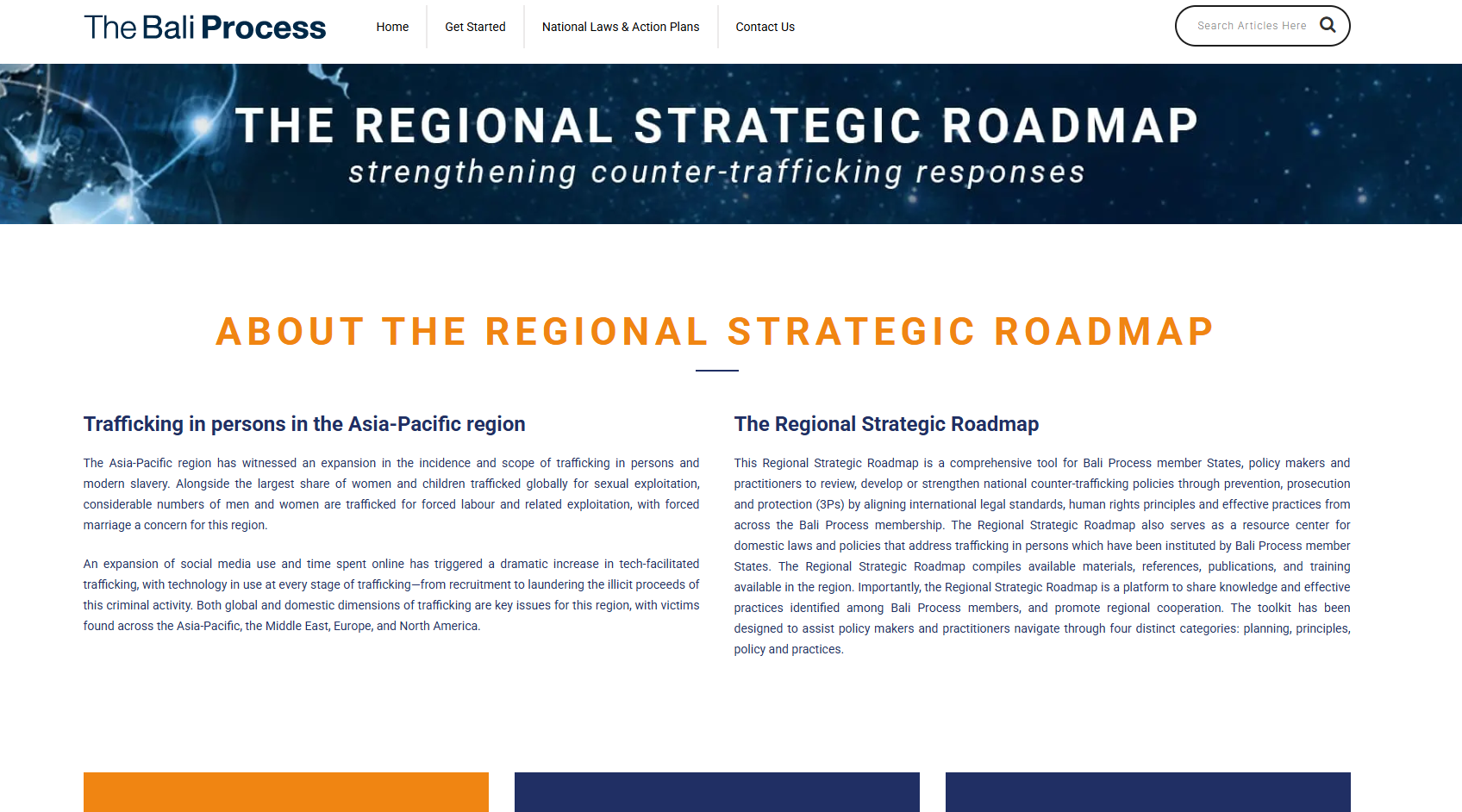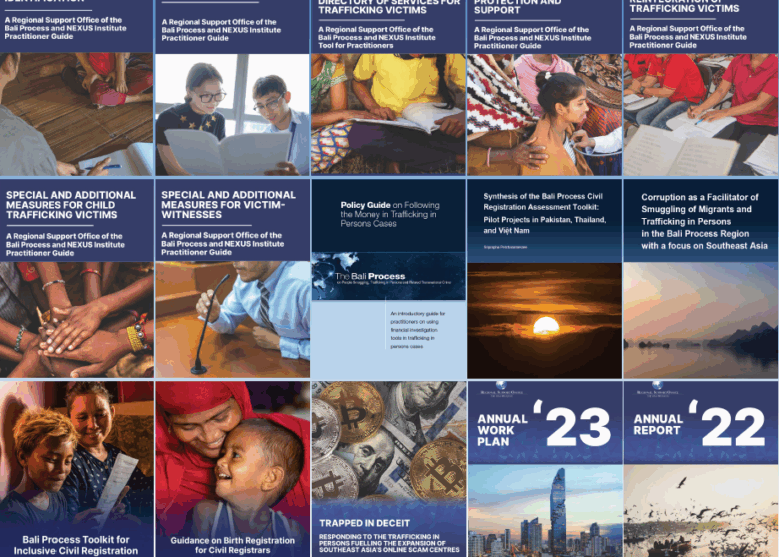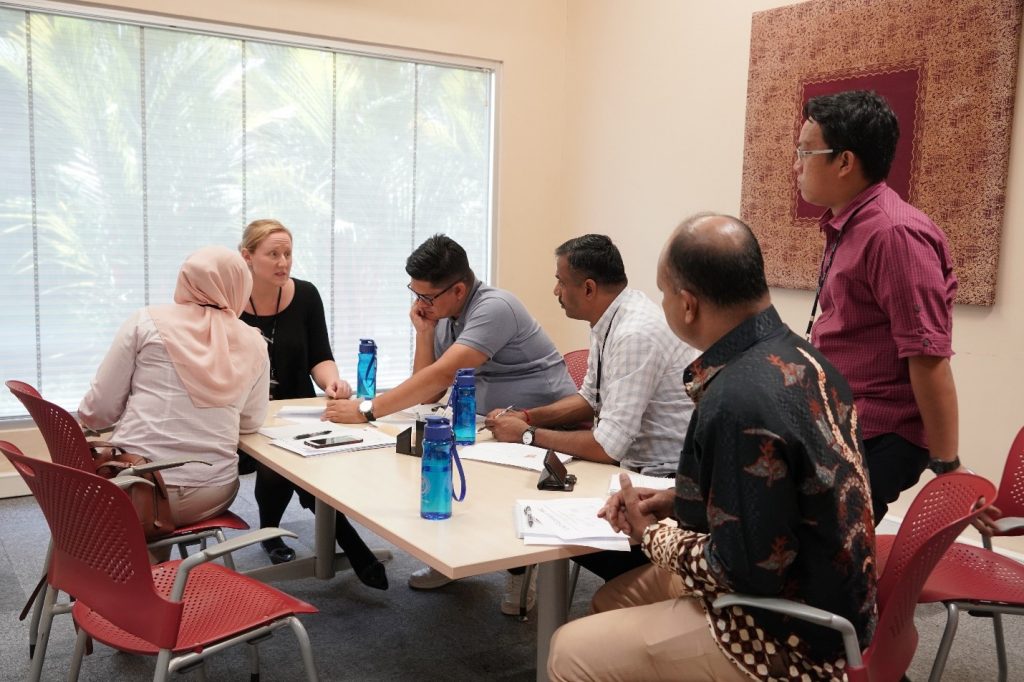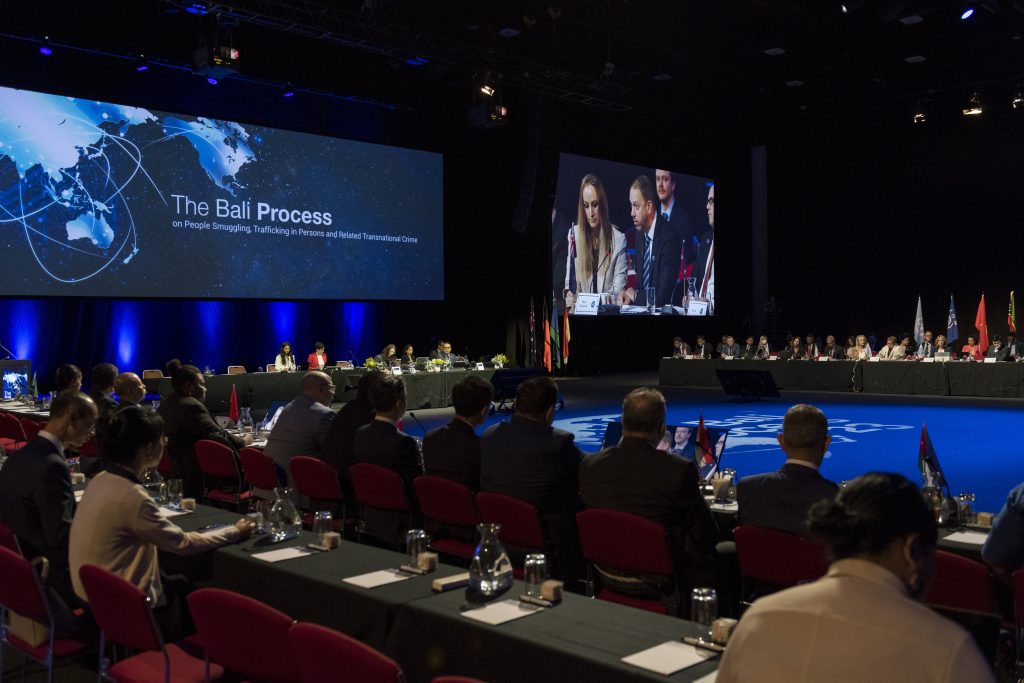
Transnational criminal networks operate through complex, agile modus operandi, holding significant power and influence through their networks. They are sophisticated in the way they work, enabled by access to substantial funds and their ability to leverage technology advances. They are often involved in multiple forms of criminal activity – from illegal trade, to movement of drugs, money laundering and arms smuggling.
Humanitarian disasters, conflict, political instability, and economic inequality continue to drive vulnerable populations to seek better economic opportunities and stability. In developed regions, a crowded jobs market is changing the demographics for those at risk, with a younger, computer-literate population vulnerable to online scams, catfishing and false adverts.
Acknowledging the increasing challenges for those working to tackle criminal networks and to support and rehabilitate victims, the Bali Process’ role in strengthening cooperation and dialogue across Members and Observers is more important than ever.
Irregular Migration and Regional Priorities
The Bali Process region continues to experience movements and displacement driven by factors such as natural and humanitarian events, armed conflicts, human rights challenges, climate change, and political or economic pressures. These circumstances can lead to irregular migration, which occurs when people move outside the established laws and regulations for entering or leaving countries of origin, transit, or destination. While these dynamics are long-standing, they continue to evolve over time.
Some communities, including those who are hard-to-reach or marginalized such as asylum seekers, refugees, and stateless people, can be particularly affected. In seeking safety, protection, and livelihood opportunities, some individuals may undertake irregular migration journeys, which can expose them to potential risks including exploitation by traffickers and smugglers.
Through the Regional Support Office, the Bali Process helps member states better understand the drivers and consequences of irregular migration. This work uses evidence-based, practical, and inclusive approaches to address gaps in areas such as civil registration, responses to disasters, and irregular labour migration. Gender and human rights are key considerations across all efforts, ensuring support for the most vulnerable communities.
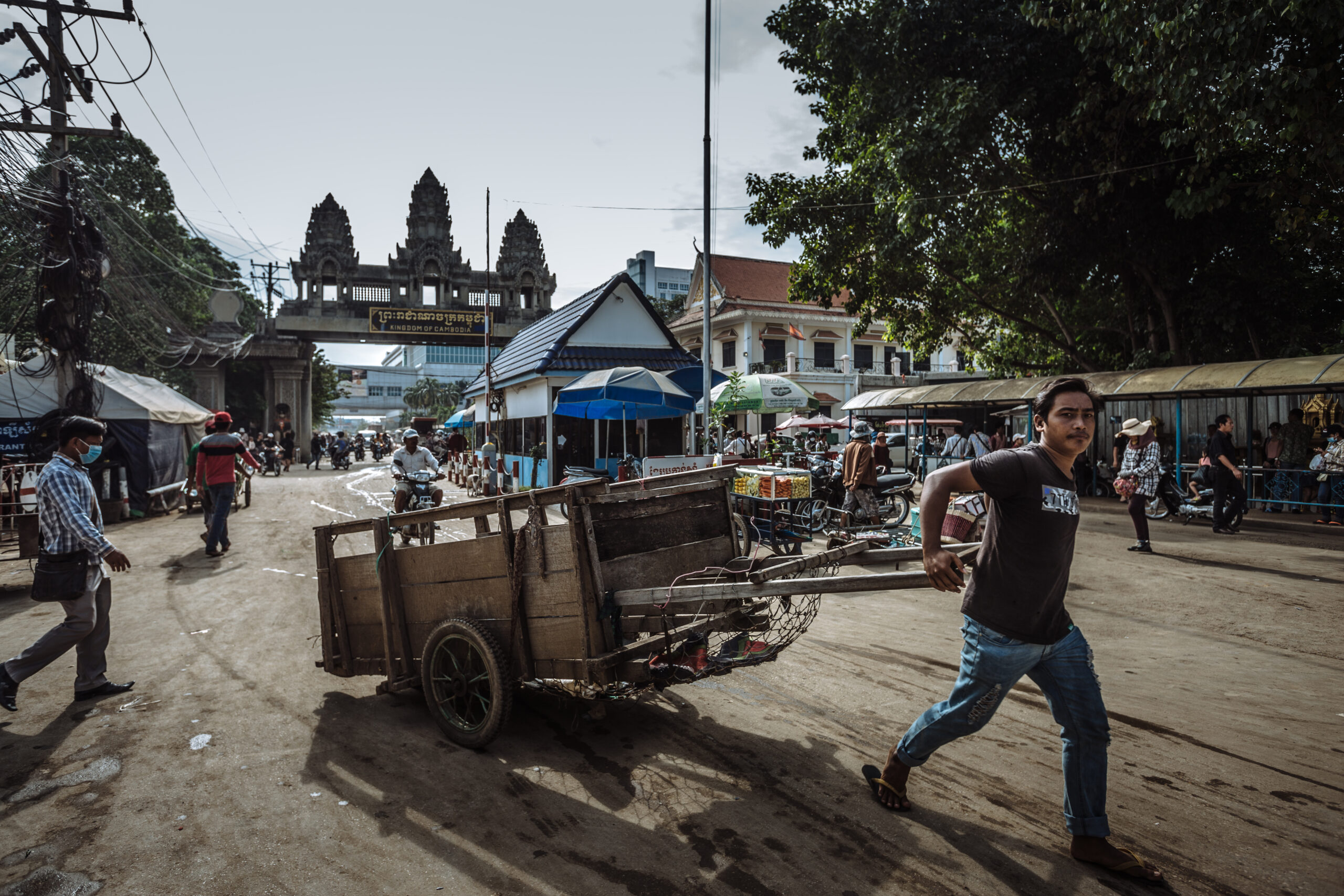
For some, daily work is found in nearby border towns; others journey farther afield for jobs that last from a few weeks to several months or even longer.
Regional Strategic Roadmap
The Regional Strategic Roadmap Toolkit empowers Bali Process members to assess national policies, identify gaps in existing counter-trafficking programs, and strengthen their responses to trafficking in persons. Serving as both a self-directed guidance tool and a resource center, the Roadmap provides access to domestic laws, policies, references, publications, and regional training initiatives implemented by Bali Process member States.
Importantly, the Roadmap functions as a platform for knowledge sharing and the dissemination of effective practices among members, fostering regional cooperation and collaboration. The toolkit is organized around four key categories, planning, principles, policy, and practices, to support policymakers and practitioners in navigating the complexities of national counter-trafficking efforts.
